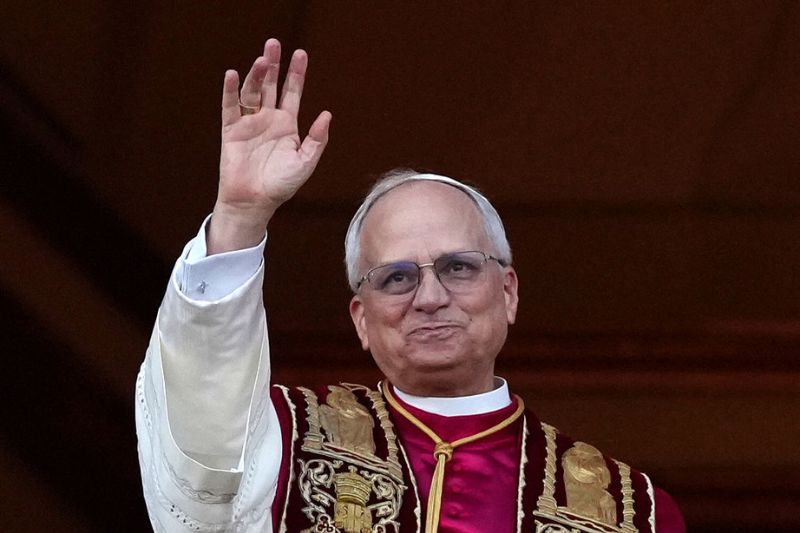Pope Leo XIV has been elected, becoming the new leader of the Catholic Church and successor to Pope Francis. He is the first US-born pope, and the second pope from the Americas. Just what sort of pope Leo will be is impossible to say, of course. When Francis was elected, many Jesuits I spoke to told me that Bergoglio had a reputation in the Argentinian Jesuit Province as a conservative. They suspected he might not be very different from John Paul II or Benedict before him. In some ways, including doctrinally, they were correct. But in many ways, they failed to anticipate not only the journey Bergoglio had undertaken since his time as Provincial, but also the journey he would embark on as pope.

With this note of caution in mind, there are some things we might learn about Pope Leo from his biography, which may help us anticipate what to expect from him as pontiff. While he was born and raised in the USA, he studied canon law in Rome and spent many of his priestly years in Peru—where he is now a naturalised citizen. He has travelled the world as Prior General of the Augustinian Order, including visits to Australia. He was appointed Bishop of Chiclayo in Peru in 2014 and served in that role until he was made a cardinal in 2023, following his appointment as Prefect of the Dicastery for Bishops.
He is a mathematician and canon lawyer who speaks five languages (English, Spanish, Portuguese, French, and Italian), which denotes a keen intelligence. But his biography also indicates someone committed to serving the Church on the margins, with a willingness to follow wherever God might lead him. He has spent time in Rome and has some understanding of the Curia, though perhaps not enough to become fully ‘Romanised’. He was also a strong supporter of the synod on synodality and explicitly mentioned it in his opening speech. The new pope’s international experience will help him greatly in discerning how synodality might be implemented in the many contexts in which the Church works.
There are, of course, many uncertainties. In his time as bishop, Pope Leo spoke critically about ‘gender ideology’ and homosexuality, particularly the influence of Western culture on countries like Peru. More recently, he expressed concerns about Pope Francis’ Fiducia supplicans and its proposed approach to blessing same-sex couples, arguing that it was not something that could be embraced in many cultures. Those who welcomed Pope Francis’ more open approach to LGBTIQ people will be wondering how the new pope will respond to them.
Similarly, there will be questions about the role of women in the Church under Pope Leo. Growing up in the United States would have given him a very different cultural experience of gender roles than his Latin American predecessor. While at the synod, Pope Leo opposed the diaconate ordination of women, saying it ‘solves no problems’, while he also welcomed Francis’ appointment of three women to the commission for bishops, noting that ‘women can add a great deal to the life of the Church on many different levels’. Will we continue to see more women appointed to prominent Vatican roles?
'Pope Leo has chosen a name steeped in the Church’s social justice tradition. His most recent namesake authored the Rerum Novarum encyclical, championing the plight of working people in a time of increasing industrialisation and laying the foundations of Catholic Social Teaching.'
In other areas, we can perhaps have a little more certainty. Pope Leo has chosen a name steeped in the Church’s social justice tradition. His most recent namesake authored the Rerum Novarum encyclical, championing the plight of working people in a time of increasing industrialisation and laying the foundations of Catholic Social Teaching. His social media account shows a strong commitment to social justice issues, featuring posts expressing sympathy with the plight of migrants, support for gun control, and solidarity with the Black Lives Matter movement in the USA. This suggests he’s unlikely to be a ‘Trumpian’, even if one hopes he might be able to gain the US President’s ear.
He has also spoken about the need to address climate change, and about the importance of bishops accompanying victims of clerical sexual abuse — providing hope for continued momentum in these critical areas.
All of this, of course, lies in the future. For the moment, we pray for the new pope and offer our thanks to the cardinals who participated in the conclave. In Pope Leo’s own words: ‘We are all in the hands of God. Without fear, united, hand in hand with God and among ourselves, we will go forward. We are disciples of Christ, Christ goes before us, and the world needs His light.’
Michael McVeigh is Head of Publishing and Digital Content at Jesuit Communications.
Main image: The newly elected Pontiff, Pope Leo XIV is seen for the first time from the Vatican balcony on May 8, 2025 in Vatican City, Vatican. White smoke was seen over the Vatican early this evening as the Conclave of Cardinals took just two days to elect Cardinal Robert Francis Prevost, who will be known as Pope Leo (Leone) XIV, as the 267th Supreme Pontiff after the death of Pope Francis on Easter Monday. (Photo by Christopher Furlong/Getty Images)